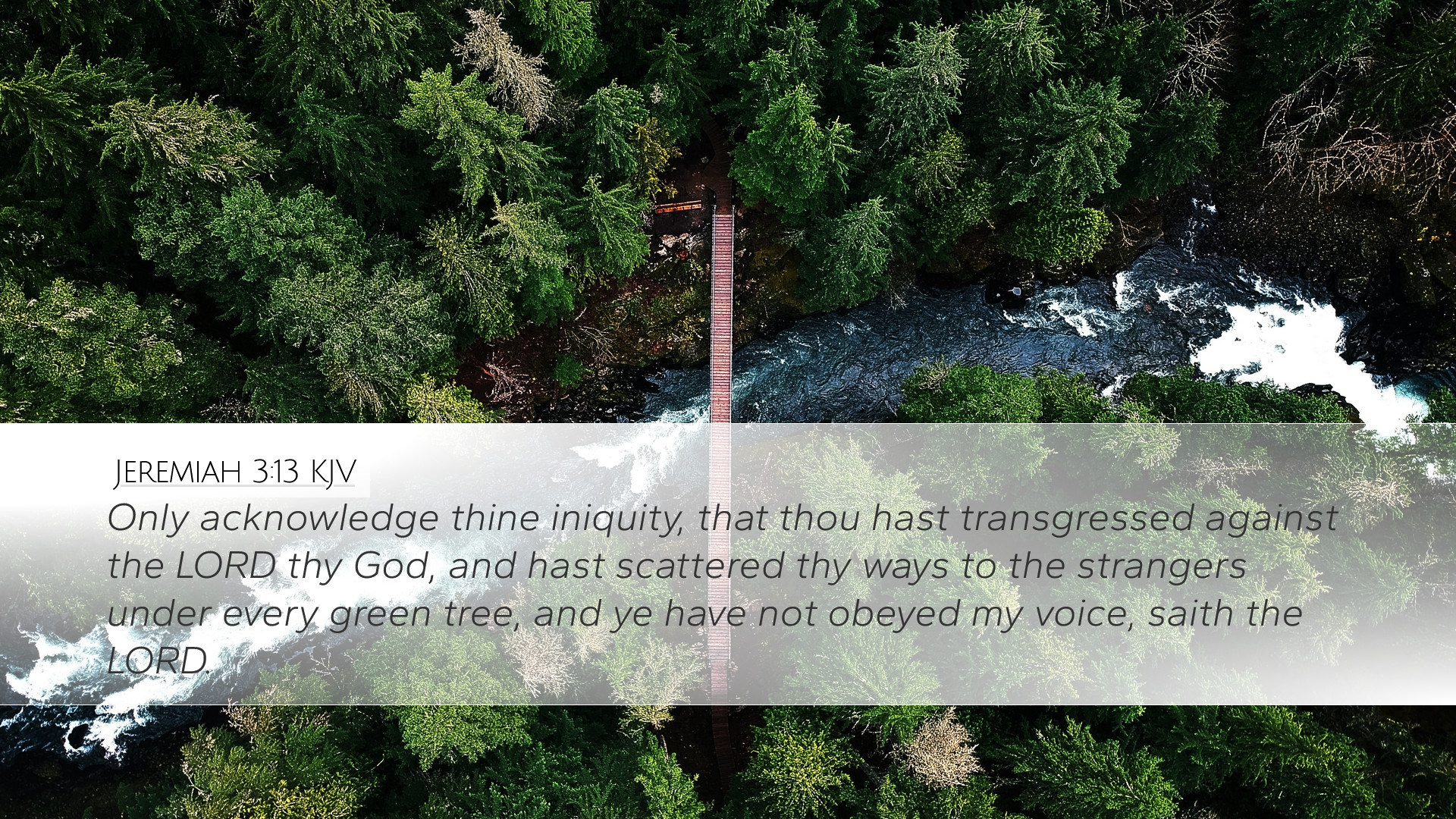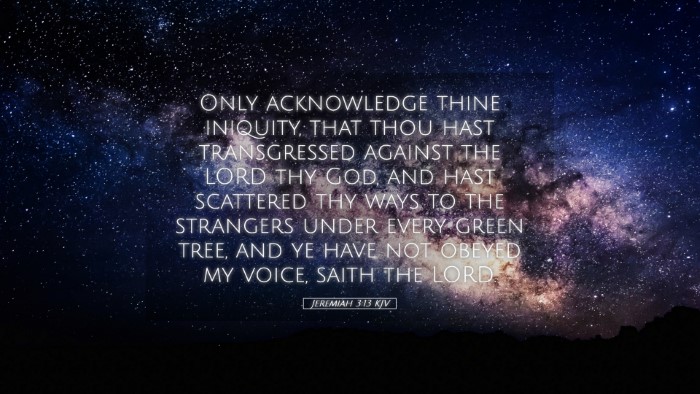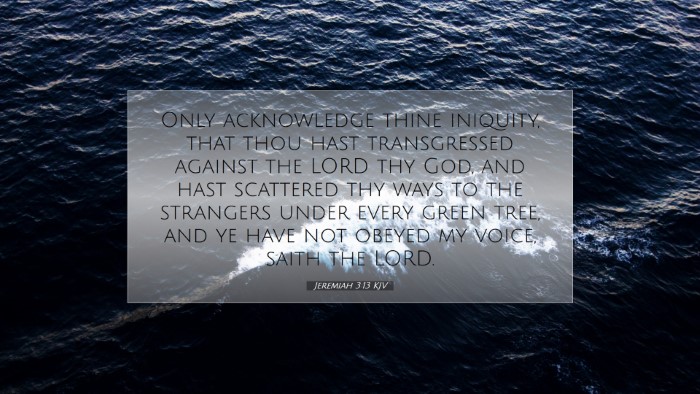Commentary on Jeremiah 3:13
Jeremiah 3:13 states, "Only acknowledge your guilt—that you rebelled against the LORD your God, and committed adultery against him by worshiping idols under every green tree, and have not obeyed me," declares the LORD. This verse serves as a poignant call for repentance and reflects God's desire for His people to recognize their transgressions. The following exposition integrates insights from notable public domain commentators including Matthew Henry, Albert Barnes, and Adam Clarke.
Contextual Overview
In the broader context of the Book of Jeremiah, this passage occurs during a time of profound moral and spiritual decline in Israel. Jeremiah, often called the 'weeping prophet,' relays God's messages to a nation that has strayed from His commandments. As they indulge in idol worship, God calls them back to a place of acknowledgment and repentance.
Divine Invitation for Acknowledgment
Matthew Henry emphasizes that God’s request for acknowledgment is not merely for information but for the purpose of genuine remorse and humility. He highlights the necessity of recognizing one's sin as the first step towards restoration. This act of acknowledgment serves as a gateway to repentance.
The Nature of the Sin
Henry notes that the sin referred to in this verse is twofold: rebellion and idolatry. The use of "adultery" metaphorically conveys the severity of the relationship between God and Israel, illustrating how their turning to idols is akin to marital infidelity. This metaphor underscores the deep emotional betrayal felt by God as His people abandon Him for false deities.
God's Faithfulness Amidst Iniquity
Albert Barnes points out that despite the persistent unfaithfulness of Israel, God's invitation calls them to return. He notes that the phrase "only acknowledge your guilt" underscores that God does not demand extensive rituals or sacrifices, but rather a heartfelt admission of wrongdoing. Barnes interprets this as a demonstration of God's mercy, showing that He finds pleasure not in the death of the wicked but in their repentance.
The Role of Idolatry
Adam Clarke elaborates on the reference to "worshiping idols under every green tree," commenting on the prevalence of pagan practices among the Israelites. Clarke notes that the "green trees" symbolize places of false worship, which not only reflects their infidelity to the Lord but also highlights their departure from the purity of worship that God commanded. This idolatry was a tangible sign of their estrangement from their true God.
Call to Obedience
The latter part of the verse emphasizes God's continued expectation of obedience. As noted by Henry, the disobedience of Israel was a blatant disregard for their covenant relationship with God. This call to obedience is an invitation to renew the covenant, suggesting that despite their previous rebellion, restoration is possible through sincere penitence.
Theological Implications
The theological significance of Jeremiah 3:13 extends beyond its immediate context, making it relevant for all believers today. The core message revolves around the principles of repentance, accountability, and the relentless grace of God. This text serves to remind pastors and theologians of God's profound desire for reconciliation with His people.
Repentance as a Fundamental Requirement
To pastors and church leaders, this verse serves as a charge to call congregants toward genuine repentance. As emphasized by Barnes, the act of repentance is not about external conformity but stems from an internal acknowledgment of guilt.
Idolatry in Contemporary Context
In modern contexts, Clarke's insights on idolatry can be applied to contemporary forms of worship that distract from true devotion to God. The challenge is for believers to identify any 'idols' that draw them away from the priority of divine worship.
Conclusion
In summary, Jeremiah 3:13 captures a divine invitation to recognize and repent from the sins of rebellion and idolatry. Commentators like Matthew Henry, Albert Barnes, and Adam Clarke collectively emphasize the importance of this acknowledgment as a crucial step towards restoration and renewed obedience. As we reflect on this verse, it remains imperative for the church to guide individuals back into a right relationship with God, echoing His call for repentance and faithfulness.


